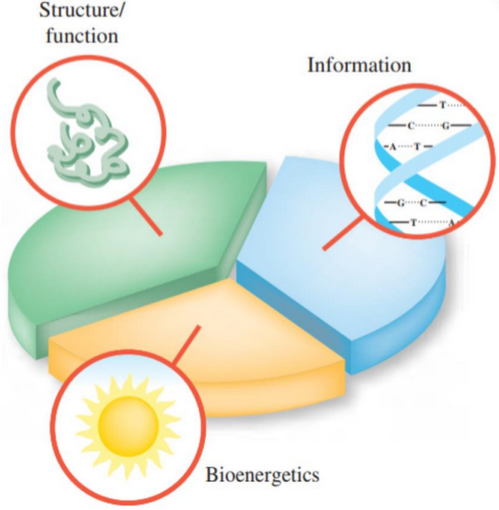Topic 1 Chemical Basis of Biochemistry
Biochemistry is a branch of science that attempts to understand the structure, the organization, and the function of living matter in molecular terms.

Figure 1.1: Composition of Biochemistry
Biochemistry also dates back to as early as 1500 BC, when the Egyptians utilized yeast to carry out the fermentation of grape juice to ethanol.

Figure 1.2: Timeline of Biochemistry
Biochemistry also has a series of notable events in the past. Some of these events are shown above in figure 1.2.
Nevertheless, Biochemistry is also an interdisciplinary science. It draws on the following branches of science:
Organic chemistry
This describes the properties and the reactions of carbon-containing molecules.
Physical chemistry
This describes the thermodynamics, the reaction kinetics, and the electrical parameters of oxidation-reduction equations.
Biophysics
This applies the physics of molecules to study the structure of biomolecules.
Medical science
This seeks to understand diseases on a molecular scale.
Nutrition
This describes the dietary requirements needed for the maintenance of good health, hence also shedding insight into metabolic pathways.
Microbiology
This branch of science shows that unicellular organisms and viruses are suited for the elucidation of many metabolic and regulatory pathways.
Physiology
This deals with life processes at the level of tissues and of organisms.
Cell biology
This describes the metabolic and the mechanical division of labor within a cell.
Genetics
This analyzes mechanisms that grant a cell or an organism its biochemical identity.